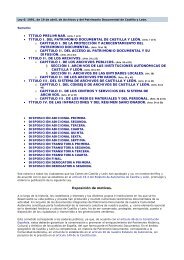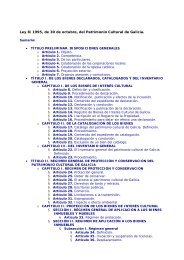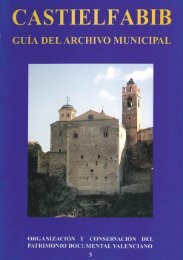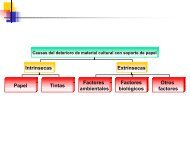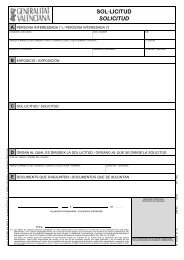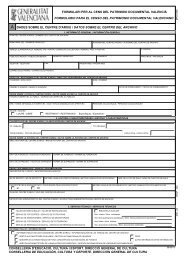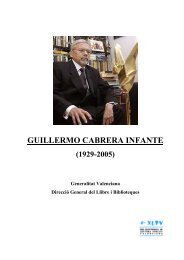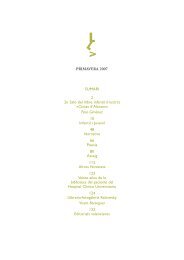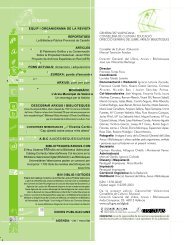Listening to the Past, Speaking to the Future
Listening to the Past, Speaking to the Future
Listening to the Past, Speaking to the Future
- No tags were found...
Create successful ePaper yourself
Turn your PDF publications into a flip-book with our unique Google optimized e-Paper software.
1The Importance of ArchivesThe archival recordis … <strong>the</strong> direct,uninterpreted andau<strong>the</strong>ntic voiceof <strong>the</strong> past.12 The his<strong>to</strong>ry of <strong>the</strong> United Kingdom is <strong>the</strong> his<strong>to</strong>ry of peopleand places, made up of great events that affect everyoneand small events that mould <strong>the</strong> lives of individualsand communities. Through books we see people, placesand events woven <strong>to</strong>ge<strong>the</strong>r, exploring and interpretingrelationships. Exhibits in museums and galleries givephysical insights in<strong>to</strong> those events, those people,those places.The archival record is different. It is <strong>the</strong> direct,uninterpreted and au<strong>the</strong>ntic voice of <strong>the</strong> past: <strong>the</strong> primaryevidence of what people did and what <strong>the</strong>y thought; <strong>the</strong>look of places and events recorded through images –both still and moving; life’s beginnings and life’s endings;<strong>the</strong> growth and decline of industries and <strong>the</strong> ebbs andflows of communities and cultures. The archival recordis <strong>the</strong> foundation on which are built all our his<strong>to</strong>ries, with<strong>the</strong>ir many and varied voices. We may hear <strong>the</strong> voice of<strong>the</strong> Lord Protec<strong>to</strong>r of England and <strong>the</strong> voice of a Ranterside by side; or <strong>the</strong> voice of <strong>the</strong> captain of industry and <strong>the</strong>worker on <strong>the</strong> fac<strong>to</strong>ry floor: <strong>the</strong> same event from verydifferent points of view.It is not overstating <strong>the</strong> importance of archives <strong>to</strong> suggestthat without <strong>the</strong>ir existence <strong>the</strong>re would not be any realsense of his<strong>to</strong>ry whe<strong>the</strong>r of <strong>the</strong> last ten years or <strong>the</strong> lastthousand years. Archives have always been <strong>the</strong> mainstayof traditional scholarship and represent <strong>the</strong> raw materialthat enables <strong>the</strong> scholar or researcher <strong>to</strong> analyse, compareand interpret.Archival records fulfil ano<strong>the</strong>r unique role. They canbe <strong>the</strong> evidential components of <strong>the</strong> public record and are<strong>the</strong>refore essential <strong>to</strong> understanding <strong>the</strong> processes ofdecision making and governance. Preserving andmanaging <strong>the</strong>se records has a long and honourable his<strong>to</strong>rythat is now visible in <strong>the</strong> work of <strong>the</strong> UK’s national archivalservices and <strong>the</strong> network of local record offices, andspecialist archives. This role has become increasinglyimportant <strong>to</strong> public life as new responsibilities <strong>to</strong> all publicauthorities for <strong>the</strong> care of archives and current recordshave emerged. The Freedom of Information Act, <strong>the</strong>Data Protection Act, <strong>the</strong> demands of electronic recordsmanagement and increasing media scrutiny of governmenthave brought fresh challenges. This importance has been



